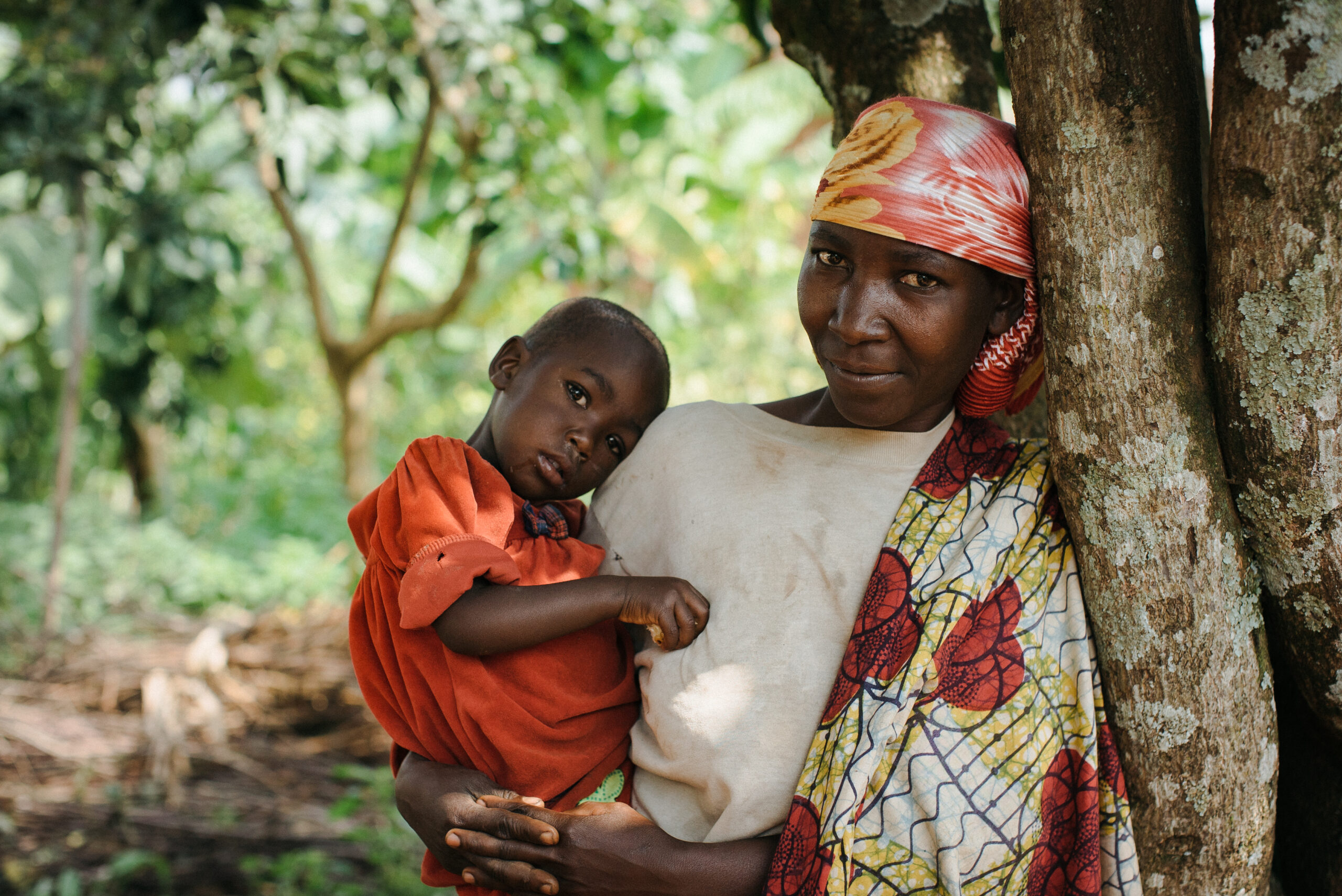
Diarrhea and Depression: New research reveals the powerful connection between maternal depression and child health

Preliminary findings from a new study by Food for the Hungry provide insight into the connection between maternal depression and the impact on the uptake of commonly promoted household-level health and nutrition behaviors in children. Photo: Jeff Arnold/Food for the Hungry.
The relationship between diarrhea and malnutrition is undeniable, with lifelong consequences for mothers and children alike. This makes healthy behaviors imperative for children at a young age—meaning, it falls on mothers and caregivers to meet those early life needs. Mothers need to understand everything from proper breastfeeding and toddler nutritional needs to the importance of boiling water and vaccinating children. And like all of us as children, mothers also need to teach children how to safely use available sanitation facilities, and to wash their hands. Handwashing alone can cut deadly diarrheal disease by 30%, critical to maintaining good nutrition.
This is not news to global health practitioners. But now consider the phenomenon that one in five mothers experiences depression after birth in low- and middle-income countries, where children are most vulnerable. Depression can be exacerbated by factors such as war, gender-based violence, and extreme poverty. And in fact, maternal depression can impact those first days and early years of a child’s growth. How?
Take diarrhea, dangerous for many reasons. According to UNICEF, 1,300 children under five years of age die each day. That’s about 480,000 children every year. Furthermore, the World Health Organization (WHO) estimates that 50% of child undernutrition cases are due to repeated diarrhea and intestinal infections caused by poor sanitation and hygiene conditions or lack of safe water. WHO estimates that undernutrition accounts for 45% of all deaths of children under five; and insufficient nutrition can cause stunting — lifelong physical and cognitive impairment.
Preventing diarrhea, providing appropriate food and water, and teaching healthy habits are all at risk when maternal mental health is ignored in the global health and nutrition communities. Low- and middle-income countries, which include over 80% of the global population, have less than 20% of the world’s mental health resources. Because professional mental health providers are rare, community-based interventions that are also low-cost are crucial when we know, for example, that eliminating maternal depression could reduce stunting globally by about 27 percent, according to one meta-analysis.
The international relief and development organization Food for the Hungry, in conjunction with Columbia University, Johns Hopkins University, and World Vision International, with financial support from the Eleanor Crook Foundation, embarked on a three-year randomized controlled trial in northern Uganda with 1,200 mothers suffering from depression. We found that effective interventions can be delivered by well-trained, non-specialist providers. These preliminary findings provide new insight into the connection between maternal depression, depression treatment, and impact on the uptake of commonly promoted household-level health and nutrition behaviors that help keep children healthy.
In the research trial, half the depressed mothers were randomized to receive three months of weekly Interpersonal Therapy for Groups (IPT-G) treatment, a community-based, empirically- supported, attachment-focused psychotherapy endorsed by WHO. Our study tested the hypothesis that this low-cost approach to treat depression can reduce maternal depression and in doing so, increase women’s ability to adopt life-saving health and nutrition actions for their children.
The IPT-G treated group also received an additional 15 months of peer-to-peer health education through Care Groups. The other half of the women, the control group, participated in Care Groups but did not receive IPT-G intervention. For those unfamiliar with Care Groups, this is an evidence-based behavior change model that uses community-based health volunteers, often mothers, who educate and engage their peers in healthy behaviors. These mothers in turn train more mothers, resulting in a “cascade” effect of peer-based training, learning, and encouragement.
Early findings highlight that when it comes to improving child health and nutrition, addressing caregiver depression is essential. This study found that the presence of depression was significantly associated with caregivers’ inhibited ability to adopt actions that impact child health and nutrition outcomes. The study also found that while women treated with IPT-G had a faster reduction of depression than in control mothers and significantly better functionality and perceived social support from significant others, by the end of the trial, depression among participants in both groups declined to similarly low levels. Understanding the potential impact of Care Groups on depression and behavior change among depressed women will be an important next step for further research.
Currently, few government ministries or the international NGO community integrate mental health into their traditional health programs. Food for the Hungry is launching a set of Caregiver Mental Health Knowledge Sharing Series initiatives to be a part of the growing momentum of implementers, researchers, advocates, and funders who are addressing caregiver mental health as a component of improving the health, nutrition, and overall welfare of individuals and communities. This on-going series of in-person events and web-based consultations aims to promote the exchange of knowledge, evidence, and resources; identify opportunities for increased attention to and funding for integration of mental health interventions into global policy and programming; drive future research and advance implementation of best practices to fill gaps; and form mutually beneficial collaborations and partnerships.
The implications for preventing diarrhea and undernutrition are clear and with this study and follow-up global engagement, we hope to emphasize to the global health community that addressing caregiver mental health is a critical component of improving the health of both mothers and their children everywhere.
Visit caregivermentalhealth.org or contact caregivermentalhealth@fh.org to learn more.
About the author:
Erin Pfeiffer is the Senior Technical Advisor in Health and Nutrition at Food for the Hungry, a leading international relief and development organization ending poverty in over 20 countries worldwide. She holds a Master’s in Public Health from the Harvard School of Public Health and has over 15 years’ experience living and working globally to improve the lives of women and children.


